Company Details
uhs
10,784
84,686
62
uhs.com
0
UHS_2344169
In-progress
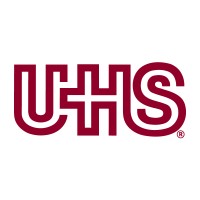
UHS Company CyberSecurity Posture
uhs.comOne of the nation’s largest and most respected providers of hospital and healthcare services, Universal Health Services, Inc. (NYSE: UHS) has built an impressive record of achievement and performance, growing since its inception into a Fortune 300 corporation. Headquartered in King of Prussia, PA, UHS has 99,000 employees. Through its subsidiaries, UHS operates 29 acute care hospitals, 331 behavioral health facilities, 60 outpatient and other facilities in 39 U.S. States, Washington, D.C., Puerto Rico and the United Kingdom. www.uhs.com UHS is a registered trademark of UHS of Delaware, Inc., a subsidiary of Universal Health Services, Inc. Universal Health Services, Inc. is a holding company that operates through its subsidiaries. All healthcare and management operations are conducted by subsidiaries of Universal Health Services, Inc. To the extent there is any reference to “UHS” or “UHS facilities” on this website, including any statements, articles or other publications contained herein which relates to healthcare or management operations, they are referring to Universal Health Services, Inc.’s subsidiaries. Further, the terms “we,” “us,” “our” or “the company” in such context similarly refer to the operations of the subsidiaries of Universal Health Services, Inc. Any reference to employment at UHS or employees of UHS refers to employment with one of the subsidiaries of Universal Health Services, Inc.
Company Details
uhs
10,784
84,686
62
uhs.com
0
UHS_2344169
In-progress
Between 700 and 749

 UHS Global Score (TPRM)
UHS Global Score (TPRM)XXXX

Description: A ransomware attack occurred against ESO Solutions, a significant software provider for emergency services and healthcare. This incident resulted from unauthorised data access and system encryption across many enterprise platforms. Depending on the information patients have shared with their healthcare providers using ESO's software, a range of personal data was exposed in the hack. Among the compromised data are: complete names dates of birth Numbers to call Numbers for patient accounts and medical records Details of the injury, diagnosis, treatment, and procedure, and Social Security numbers. It was established that patient data connected to U.S. hospitals and clinics that ESO serves as a client was compromised. All notified parties will receive a year of identity monitoring services from Kroll through ESO to assist in reducing risks.
Description: The systems of the famous healthcare facility, Universal Health Services, were targeted by the Rayuk ransomware group in September 2020. The attackers hit the systems, disabled multiple antivirus programs, and logged the systems out. The attack caused the doctors to wait for a longer period for lab test results and even resulted in four casualties. The healthcare immediately took action and removed the encrypted files and restored the systems.


No incidents recorded for UHS in 2025.
No incidents recorded for UHS in 2025.
No incidents recorded for UHS in 2025.
UHS cyber incidents detection timeline including parent company and subsidiaries

One of the nation’s largest and most respected providers of hospital and healthcare services, Universal Health Services, Inc. (NYSE: UHS) has built an impressive record of achievement and performance, growing since its inception into a Fortune 300 corporation. Headquartered in King of Prussia, PA, UHS has 99,000 employees. Through its subsidiaries, UHS operates 29 acute care hospitals, 331 behavioral health facilities, 60 outpatient and other facilities in 39 U.S. States, Washington, D.C., Puerto Rico and the United Kingdom. www.uhs.com UHS is a registered trademark of UHS of Delaware, Inc., a subsidiary of Universal Health Services, Inc. Universal Health Services, Inc. is a holding company that operates through its subsidiaries. All healthcare and management operations are conducted by subsidiaries of Universal Health Services, Inc. To the extent there is any reference to “UHS” or “UHS facilities” on this website, including any statements, articles or other publications contained herein which relates to healthcare or management operations, they are referring to Universal Health Services, Inc.’s subsidiaries. Further, the terms “we,” “us,” “our” or “the company” in such context similarly refer to the operations of the subsidiaries of Universal Health Services, Inc. Any reference to employment at UHS or employees of UHS refers to employment with one of the subsidiaries of Universal Health Services, Inc.

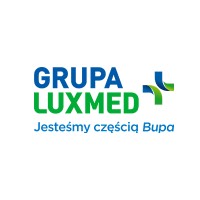
LUX MED - leader and trustworthy expert We care for the health of the patients professionally and with engagement, we have been developing our business for over 20 years. Today we are the leader and expert on the private healthcare market. We take under our care both individual patients and corpo
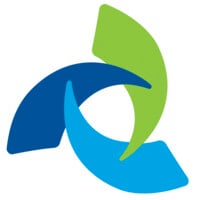
Lehigh Valley Health Network (LVHN) is proudly part of Jefferson Health, forming a leading integrated academic health care delivery system. With 65,000 colleagues, 32 hospitals and over 700 sites of care across the Lehigh Valley, northeastern Pennsylvania, Delaware Valley and southern New Jersey. L
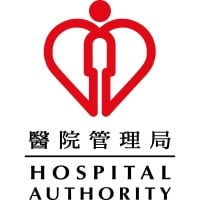
The Hospital Authority (HA) is a statutory body established under the Hospital Authority Ordinance in 1990. We have been responsible for managing Hong Kong's public hospitals services since December 1991. We are accountable to the Hong Kong Special Administrative Region Government through the Secret
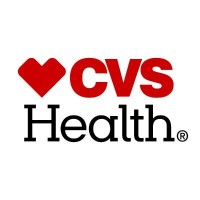
CVS Health is the leading health solutions company, delivering care like no one else can. We reach more people and improve the health of communities across America through our local presence, digital channels and over 300,000 dedicated colleagues – including more than 40,000 physicians, pharmacists,

Beginning with a single community in 1981, Sunrise Senior Living has grown to more than 270 communities throughout the U.S. and Canada. Each of our communities continues the mission laid out by founders Paul and Terry Klaassen more than 40 years ago: to champion quality of life for all seniors. Jo

The Medical University of South Carolina (MUSC) is a public institution of higher learning the purpose of which is to preserve and optimize human life in South Carolina and beyond. The university provides an interprofessional environment for learning and discovery through education of health care p

At Mercy Health, we understand that every family is a universe. A network of people who love, and support, and count on one other to be there. Everybody means the world to someone and we are committed to care for others so they can be there for the ones they love. With nearly 35,000 employees across
UPMC is a world-renowned, nonprofit health care provider and insurer committed to delivering exceptional, people-centered care and community services. Headquartered in Pittsburgh and affiliated with the University of Pittsburgh Schools of the Health Sciences, UPMC is shaping the future of health thr

Anteriormente Organización Sanitas Internacional, Keralty es un grupo empresarial de valor en salud, con más de 40 años de experiencia conformado por empresas de aseguramiento y prestación de servicios de salud y una red propia hospitalaria y asistencial. También forman parte de Keralty institucion
.png)
University College London Hospitals NHS Foundation Trust and University Hospital Southampton NHS Foundation Trust were exposed,...
Posted by cfelixcpa | May 25, 2025 | SF STAT! | 0 |. UHS's Kim Sassaman Named Among CISOs Connect's™ Top 100 CISOs 2025. image_pdf image_print.
Breaking down major publicly traded hospital operator themes across utilization, revenue and payor mix, expenses, growth, and more.
Associate Chief Information Officer Kara Hines and Chief Revenue Cycle Officer Kenneth Hogue of UHS were recently named “Rising Stars: 42 healthcare leaders...
Ryuk ransomware attacks vastly increased during 2020. From almost obscurity in 2019, Ryuk now accounts for a third of all ransomware attacks.
Senior leadership at major for-profit systems say they're shielded from the liquidity and administrative issues plaguing providers across...
Sven Hahues will lead the University of Houston System's (UHS) information security initiatives as the new chief information security officer (CISO).
It is with great excitement that we announce the appointment of Sven Hahues as the new Chief Information Security Officer (CISO) for the...
On Feb. 25, the 400-plus hospital, Pennsylvania-based Universal Health Services, Inc. disclosed in its fourth-quarter 2020 earnings report that the cyber...

Explore insights on cybersecurity incidents, risk posture, and Rankiteo's assessments.
The official website of UHS is http://www.uhs.com.
According to Rankiteo, UHS’s AI-generated cybersecurity score is 718, reflecting their Moderate security posture.
According to Rankiteo, UHS currently holds 0 security badges, indicating that no recognized compliance certifications are currently verified for the organization.
According to Rankiteo, UHS is not certified under SOC 2 Type 1.
According to Rankiteo, UHS does not hold a SOC 2 Type 2 certification.
According to Rankiteo, UHS is not listed as GDPR compliant.
According to Rankiteo, UHS does not currently maintain PCI DSS compliance.
According to Rankiteo, UHS is not compliant with HIPAA regulations.
According to Rankiteo,UHS is not certified under ISO 27001, indicating the absence of a formally recognized information security management framework.
UHS operates primarily in the Hospitals and Health Care industry.
UHS employs approximately 10,784 people worldwide.
UHS presently has no subsidiaries across any sectors.
UHS’s official LinkedIn profile has approximately 84,686 followers.
UHS is classified under the NAICS code 62, which corresponds to Health Care and Social Assistance.
No, UHS does not have a profile on Crunchbase.
Yes, UHS maintains an official LinkedIn profile, which is actively utilized for branding and talent engagement, which can be accessed here: https://www.linkedin.com/company/uhs.
As of November 27, 2025, Rankiteo reports that UHS has experienced 2 cybersecurity incidents.
UHS has an estimated 29,991 peer or competitor companies worldwide.
Incident Types: The types of cybersecurity incidents that have occurred include Ransomware.
Detection and Response: The company detects and responds to cybersecurity incidents through an containment measures with removed encrypted files, containment measures with restored systems, and third party assistance with kroll, and remediation measures with one year of identity monitoring services from kroll..
Title: Ransomware Attack on Universal Health Services
Description: The systems of the famous healthcare facility, Universal Health Services, were targeted by the Rayuk ransomware group in September 2020. The attackers hit the systems, disabled multiple antivirus programs, and logged the systems out. The attack caused the doctors to wait for a longer period for lab test results and even resulted in four casualties. The healthcare immediately took action and removed the encrypted files and restored the systems.
Date Detected: September 2020
Type: Ransomware
Threat Actor: Rayuk ransomware group
Title: Ransomware Attack on ESO Solutions
Description: A ransomware attack occurred against ESO Solutions, a significant software provider for emergency services and healthcare. This incident resulted from unauthorised data access and system encryption across many enterprise platforms. Depending on the information patients have shared with their healthcare providers using ESO's software, a range of personal data was exposed in the hack. Among the compromised data are: complete names, dates of birth, phone numbers, patient account numbers, medical records, details of the injury, diagnosis, treatment, and procedure, and Social Security numbers. It was established that patient data connected to U.S. hospitals and clinics that ESO serves as a client was compromised. All notified parties will receive a year of identity monitoring services from Kroll through ESO to assist in reducing risks.
Type: Ransomware Attack
Attack Vector: Unauthorised Data Access and System Encryption
Common Attack Types: The most common types of attacks the company has faced is Ransomware.

Operational Impact: Longer wait times for lab test resultsFour casualties

Data Compromised: Complete names, Dates of birth, Phone numbers, Patient account numbers, Medical records, Details of injury, diagnosis, treatment, and procedure, Social security numbers
Commonly Compromised Data Types: The types of data most commonly compromised in incidents are Personal Information, Medical Records and .

Entity Name: Universal Health Services
Entity Type: Healthcare facility
Industry: Healthcare

Entity Name: ESO Solutions
Entity Type: Software Provider
Industry: Healthcare and Emergency Services
Customers Affected: U.S. hospitals and clinics

Containment Measures: Removed encrypted filesRestored systems

Third Party Assistance: Kroll
Remediation Measures: One year of identity monitoring services from Kroll
Third-Party Assistance: The company involves third-party assistance in incident response through Kroll.

Type of Data Compromised: Personal information, Medical records
Sensitivity of Data: High
Prevention of Data Exfiltration: The company takes the following measures to prevent data exfiltration: One year of identity monitoring services from Kroll.
Handling of PII Incidents: The company handles incidents involving personally identifiable information (PII) through by removed encrypted files, restored systems and .

Ransomware Strain: Rayuk

Data Encryption: True
Post-Incident Analysis Process: The company's process for conducting post-incident analysis is described as Kroll.
Last Attacking Group: The attacking group in the last incident was an Rayuk ransomware group.
Most Recent Incident Detected: The most recent incident detected was on September 2020.
Most Significant Data Compromised: The most significant data compromised in an incident were Complete names, Dates of birth, Phone numbers, Patient account numbers, Medical records, Details of injury, diagnosis, treatment, and procedure, Social Security numbers and .
Third-Party Assistance in Most Recent Incident: The third-party assistance involved in the most recent incident was Kroll.
Containment Measures in Most Recent Incident: The containment measures taken in the most recent incident was Removed encrypted filesRestored systems.
Most Sensitive Data Compromised: The most sensitive data compromised in a breach were Patient account numbers, Details of injury, diagnosis, treatment, and procedure, Medical records, Complete names, Dates of birth, Social Security numbers and Phone numbers.
.png)
Angular is a development platform for building mobile and desktop web applications using TypeScript/JavaScript and other languages. Prior to versions 19.2.16, 20.3.14, and 21.0.1, there is a XSRF token leakage via protocol-relative URLs in angular HTTP clients. The vulnerability is a Credential Leak by App Logic that leads to the unauthorized disclosure of the Cross-Site Request Forgery (XSRF) token to an attacker-controlled domain. Angular's HttpClient has a built-in XSRF protection mechanism that works by checking if a request URL starts with a protocol (http:// or https://) to determine if it is cross-origin. If the URL starts with protocol-relative URL (//), it is incorrectly treated as a same-origin request, and the XSRF token is automatically added to the X-XSRF-TOKEN header. This issue has been patched in versions 19.2.16, 20.3.14, and 21.0.1. A workaround for this issue involves avoiding using protocol-relative URLs (URLs starting with //) in HttpClient requests. All backend communication URLs should be hardcoded as relative paths (starting with a single /) or fully qualified, trusted absolute URLs.
Forge (also called `node-forge`) is a native implementation of Transport Layer Security in JavaScript. An Uncontrolled Recursion vulnerability in node-forge versions 1.3.1 and below enables remote, unauthenticated attackers to craft deep ASN.1 structures that trigger unbounded recursive parsing. This leads to a Denial-of-Service (DoS) via stack exhaustion when parsing untrusted DER inputs. This issue has been patched in version 1.3.2.
Forge (also called `node-forge`) is a native implementation of Transport Layer Security in JavaScript. An Integer Overflow vulnerability in node-forge versions 1.3.1 and below enables remote, unauthenticated attackers to craft ASN.1 structures containing OIDs with oversized arcs. These arcs may be decoded as smaller, trusted OIDs due to 32-bit bitwise truncation, enabling the bypass of downstream OID-based security decisions. This issue has been patched in version 1.3.2.
Suricata is a network IDS, IPS and NSM engine developed by the OISF (Open Information Security Foundation) and the Suricata community. Prior to versions 7.0.13 and 8.0.2, working with large buffers in Lua scripts can lead to a stack overflow. Users of Lua rules and output scripts may be affected when working with large buffers. This includes a rule passing a large buffer to a Lua script. This issue has been patched in versions 7.0.13 and 8.0.2. A workaround for this issue involves disabling Lua rules and output scripts, or making sure limits, such as stream.depth.reassembly and HTTP response body limits (response-body-limit), are set to less than half the stack size.
Suricata is a network IDS, IPS and NSM engine developed by the OISF (Open Information Security Foundation) and the Suricata community. In versions from 8.0.0 to before 8.0.2, a NULL dereference can occur when the entropy keyword is used in conjunction with base64_data. This issue has been patched in version 8.0.2. A workaround involves disabling rules that use entropy in conjunction with base64_data.

Get company history
















Every week, Rankiteo analyzes billions of signals to give organizations a sharper, faster view of emerging risks. With deeper, more actionable intelligence at their fingertips, security teams can outpace threat actors, respond instantly to Zero-Day attacks, and dramatically shrink their risk exposure window.
Identify exposed access points, detect misconfigured SSL certificates, and uncover vulnerabilities across the network infrastructure.
Gain visibility into the software components used within an organization to detect vulnerabilities, manage risk, and ensure supply chain security.
Monitor and manage all IT assets and their configurations to ensure accurate, real-time visibility across the company's technology environment.
Leverage real-time insights on active threats, malware campaigns, and emerging vulnerabilities to proactively defend against evolving cyberattacks.




